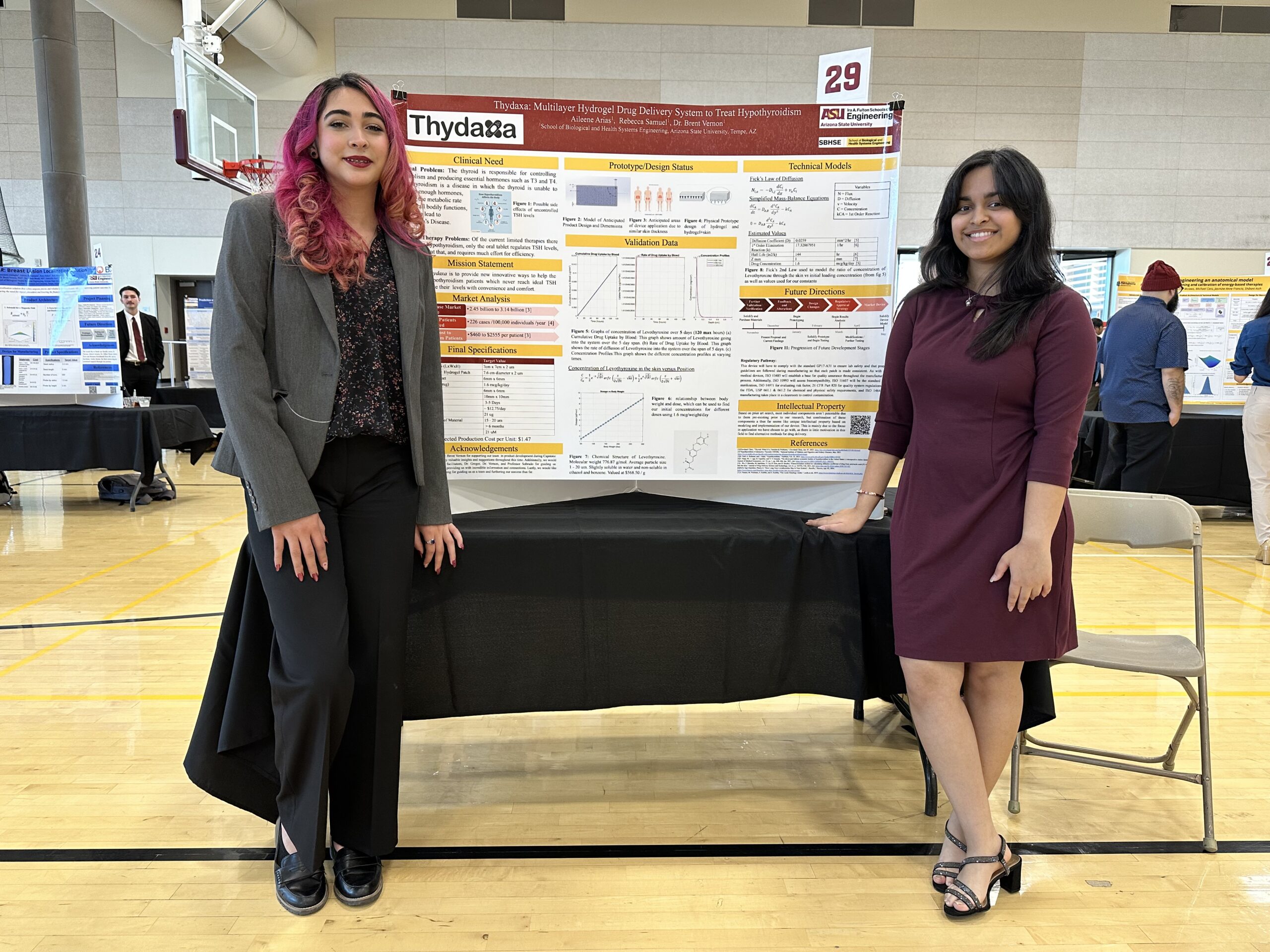Abstract
This project aims to create an alternative to current hypothyroidism treatments through the concept of a multi-layer T4-delivering patch. This patch would be applied to the surface of the skin and diffuse transdermally into the bloodstream for a more localized delivery. The design consists of a hydrogel scaffold, about half of which will be blank layers in between drug-containing hydrogel comprised of PEG or silicon substrate. Each layer will contain pores for even diffusion between layers. Surrounding the patch will be an adhesive infused with green tea extract or essential oils to reduce redness. Currently, the only treatment options available are oral levothyroxine pills, radiotherapy, or a thyroidectomy. With these options, 35-60% of patients never reach ideal TSH levels, and even when treated with current solutions, 5-10% still experience symptoms such as obesity, heart disease, mental health issues, infertility, and other autoimmune diseases. As of 2022, the market size was USD 2.37 billion, and patients paid an average of $460 to $2,555 a year for treatment. Between the period of 2023-2031, there is a projected growth for the market to increase from $2.45 billion to $3.14 billion with a CAGR of 3.17%. End users for the product include pharmacies, hospitals, and clinics, with key market players including Abbott Laboratories, Eli Lilly, Novartis, Johnson & Johnson, Pfizer, etc. Based on the current price range of the levothyroxine pill being between $4-$8 for a 30-day supply, we aim for the patch to be ideally within this range if not no more than $10-$12 per 4-week supply due to an increase in cost associated with multiple materials compared to a pill.
Video
Research poster
Health
